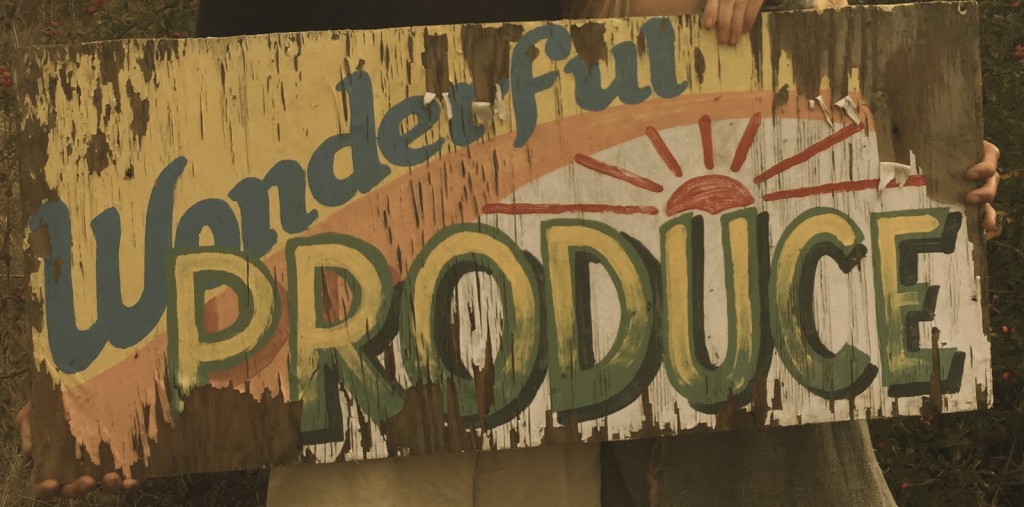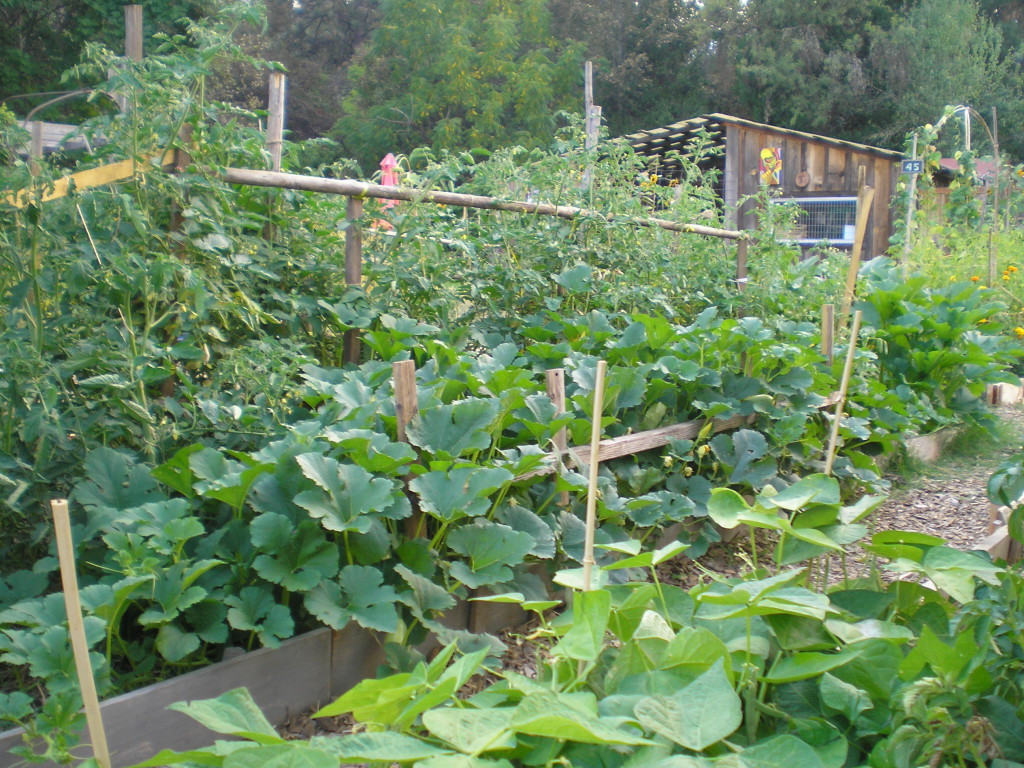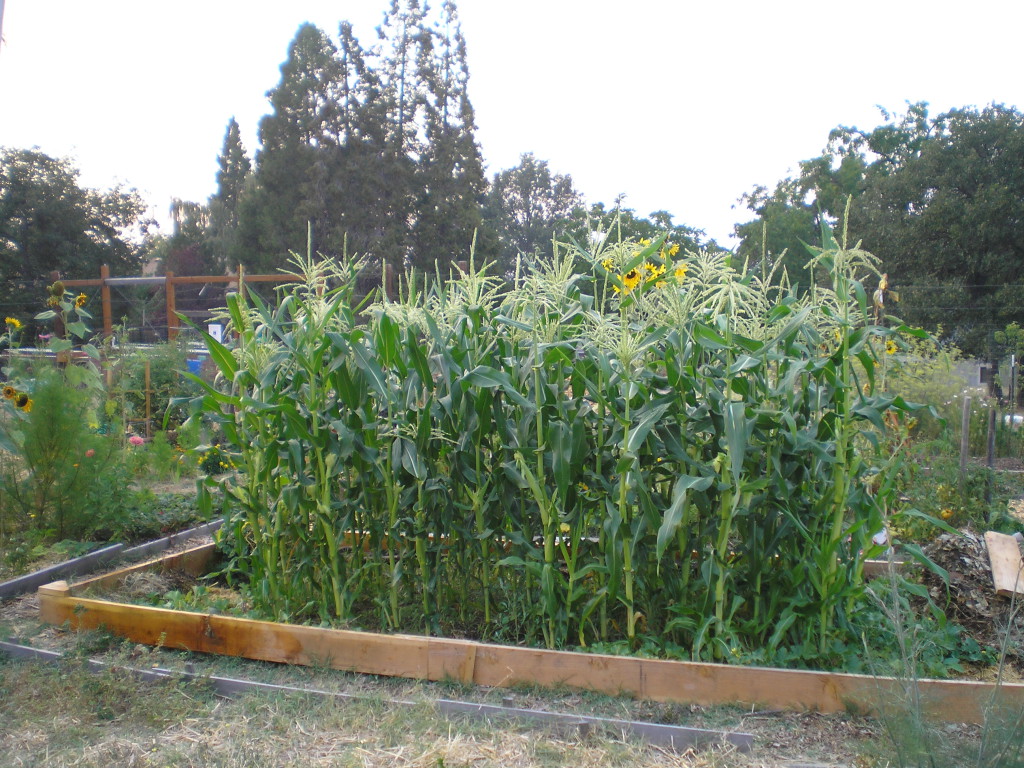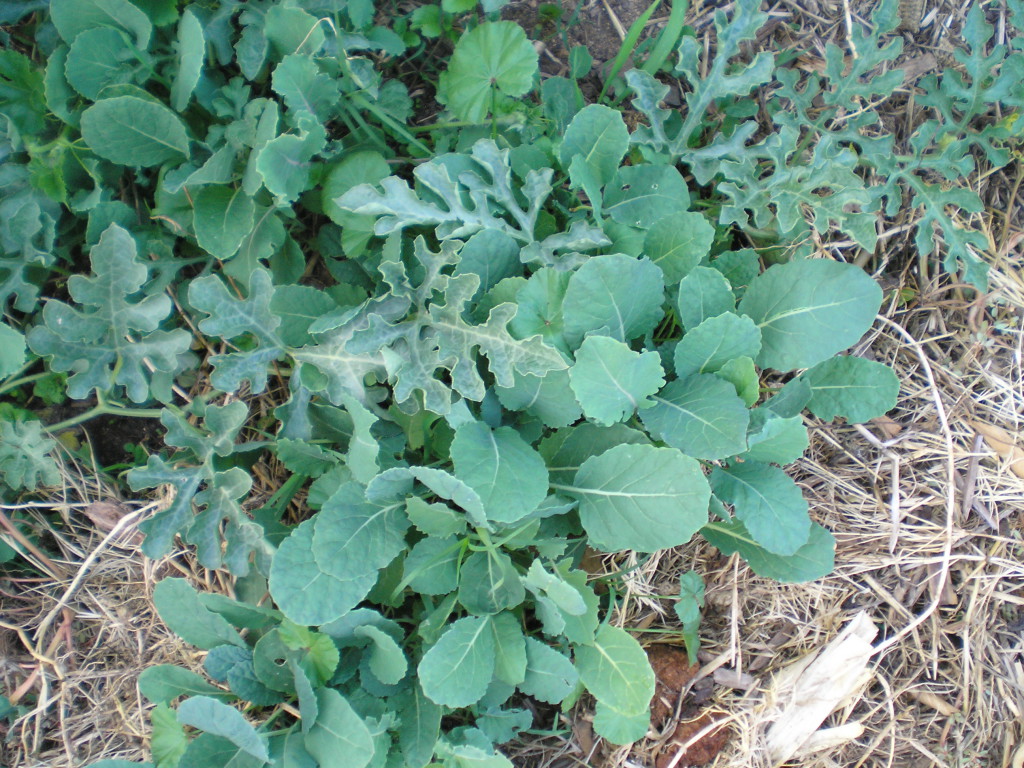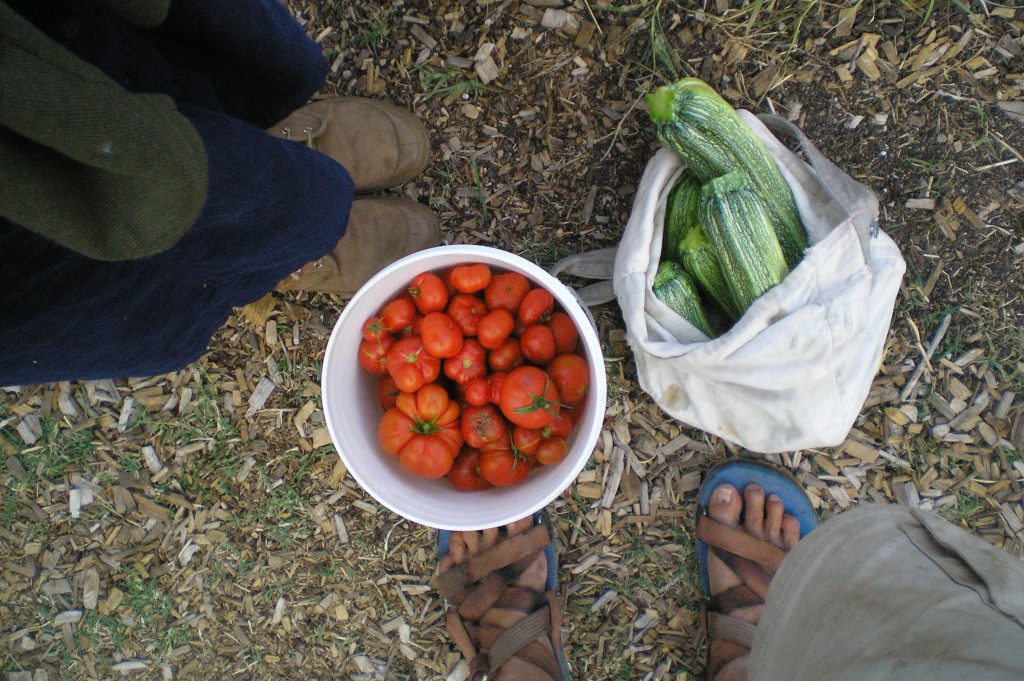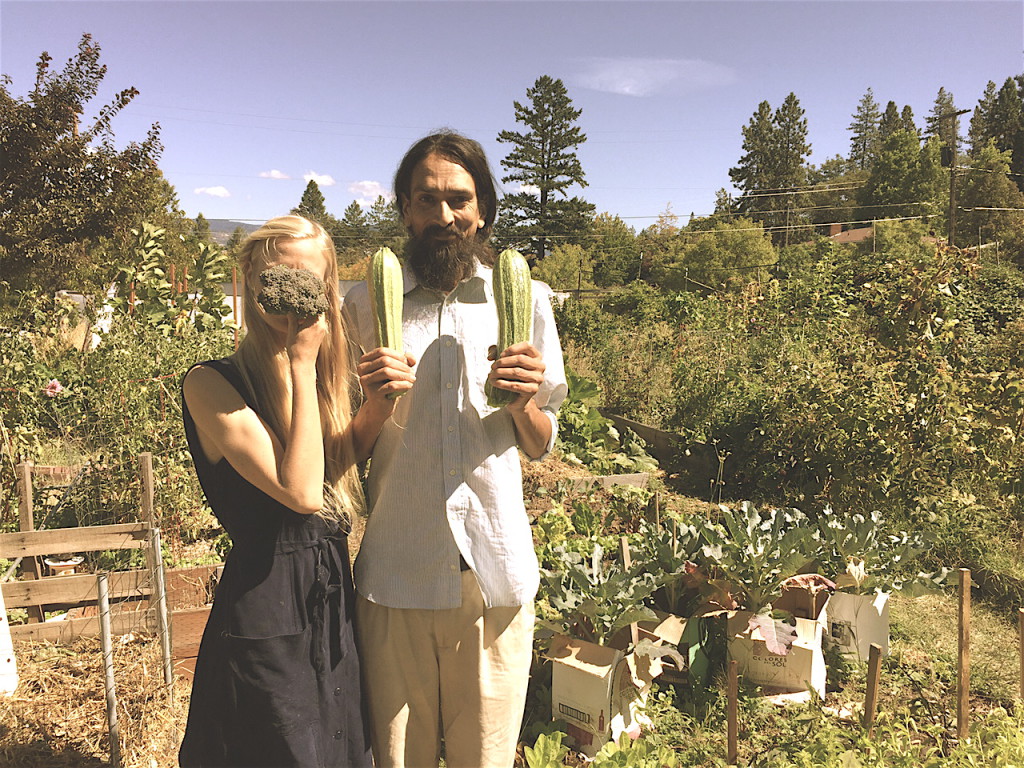Veganic: More Ways to Share and Care
Guest post by Brittany Morgan who holds a permaculture design certificate and cultivates garden plots in Ashland, Oregon.
Veganic shares the practices of organic and goes further by choosing a path away from (ab)using non-human animals as well as the earth. The foresight and actions in veganic can help to create health for all beings whilst restoring the earth. Veganic methods do not enslave animals and do not rely on using their waste, or their bodies after death, in farming and gardening. Instead, nourishment and health for the soil is found through benevolent and less wasteful cycles, which can include some or all of the following: living mulches, crop rotation, polyculture, forest gardening, compost, human urine, human manure, and many other sustainable practices that do not rely on the exploitation of animals. In the case of compost and human excrement, both are treated through processes of heat and time, and when ready they transition from so-called waste to become important additions to soil fertility. Presently, not all veganic farmers and gardeners make use of human manure.
I know poop can be a subject that many people want to avoid but I want to share that I believe that this disgust and fear mainly exists because of the impurity of the meals most Americans eat, meals which are very linked to dis-ease, immense suffering, and pollution. Knowledge about how human poop can be transformed into manure is well established and already supports such gardening practices in many places. Also, keep in mind that cow manure, blood meal, feather meal, and ground up fish are added to soil, without questions, to increase productivity on the majority of farms.
Non-human animals enslaved on farms need not be the way humans choose any further; in fact health for our species and for the rest of life in our biosphere depends on humans choosing foresight and kindness by liberating non-human animals as well as the Earth in whole. How, may you ask, is the Earth enslaved? Well, monocrops destroy ecosystems and this applies to monocrops of plants, to monocrops of animals in farms, and yes, to monocrops of humans in cities.
My hope for the future of healing and sustenance resides in forest gardening in particular. The innovation and wisdom to model after a mainly closed loop system, such as a forest, and especially without abusing sentient life, is quite inspiring to me. I love thinking of cities becoming food forests with smaller dwellings and more sprouting earth, and I really love that land would be freed up for habitat restoration and the return of free roaming animals! How beautiful can life unfold to be?! Humans appear to me to be the main movers and shakers, at this point, in space and time, and through such, in addition to caring, can restore and create more beauty on earth. Human health is interconnected with all the other species on the earth, both plant and animal, and with veganic practices more health will abound. While creating more fertility and diversity, without cruelty, veganic farming and gardening welcomes the return of more flora and fauna. A healthy ecosystem means that the animal and plant life of the system have balanced cycles while creating//sharing health! In the wilderness, where the manipulation of humans is not present, ‘waste’ always becomes nourishment in some way; humans have much to learn in order to follow the beautiful system of ‘waste’ equaling fertility.
This past summer my partner, Jamshed, and I had 4 plots at a community garden in Ashland, Oregon where we made use of veganic gardening with enthusiasm. When we ‘weeded’ we let the ‘weeds’ dry in the summer heat and later added them to our compost pile or used them as mulching. Our compost piles gathered much over the months, with both he and I eating an all fruit diet by day and vegetables for evening meals. Urine was collected and put at the base of each tomato plant and on to the compost pile, providing much needed nitrogen and other minerals. The garden was filled with 14+ tomato plants, several zucchini plants, spaghetti squash, tomatillos, swiss chard, gypsy broccoli, kale, cantaloupe, watermelons, purslane, mustard greens, a variety of lettuces, calendula, basil, 66+ corn plants, and cucs! From the 4 plots he and I harvested well over 200 lbs of produce, with almost every corn stalk producing 2 ears of corn! Other gardeners remarked on the vibrancy of the plants and this was so without using fish emulsion, organic pesticides, or other non-veganic practices. The healthier the soil and plants are the less dis-ease and ‘pest’ insects there will be. Healthy soil creates healthy plants and is also needed to create healthy animals, and this includes health for human animals too.
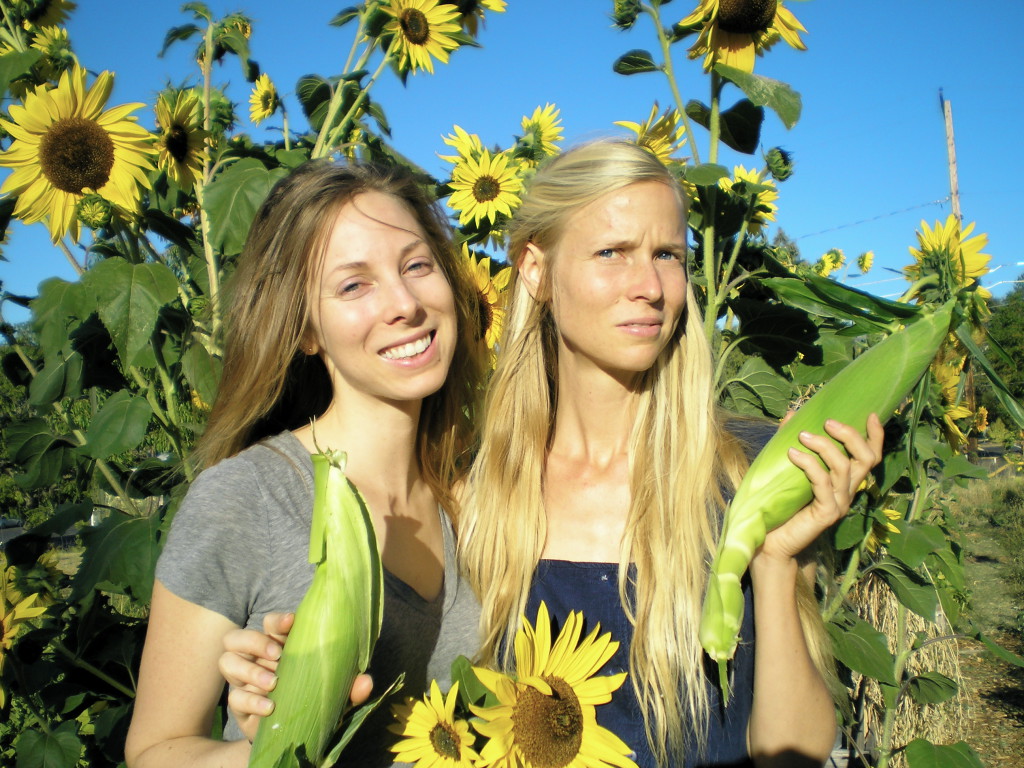
First corn harvest from J and my garden, my sister Bethany and I, Summer 2015. The sun was very bright!
Find a community garden or a friend’s garden to add your compost to, get plots if available, grow edible greens indoors, plant in containers on balconies and porches, collect your urine for the compost and your garden, plant seeds and marvel at their growth, ask others for advice on gardening, look into using human manure, and grow food justice!
Compost piles lessen methane pollution by keeping produce matter out of landfills, where food waste does not break down in the healthiest of ways. Urine collection and human manure transform “waste”, these practices can therefore keep human “waste” from being put into water that then needs to be treated. Human excrement is usually treated through water intensive processes, in the final stages of which chlorine is added. After the treatment process, both the chlorine water and sludge (treated waste) often get dumped into waterways. 85% of the sludge in Oregon is spread on dry lands as fertilizer either where cows graze or where hay is grown for animals to eat. However, human manure can be and is a fertilizer for soils where food crops grow and yet in the USA, so far, this is only practiced in personal gardens and in some gardens within communities (ie. the Kailash Ecovillage Communtiy in SE Portland, Oregon). Urine and human manure can be kept on land to be used instead of commercial fertilizers and imported organic fertilizers. In fact, doing so will help to complete a circle that is now being wastefully disrupted with flush water toilets. Bravo to those searching for and finding practices to heal oneself whilst healing the rest of life on earth, the two are indeed intricately interrelated!
Additionally, and wonderfully, a full switch to veganic farming and gardening could free up large surfaces of land for the restoration of habitats; much less land is needed to live veganically! With this, veganism can also bring back the gifts of biodiversity. There are many reasons to celebrate as the transition to veganic food systems unfolds and is, perhaps, even furthered by you.
More ways to care:
*Love animals, there is enough to eat from plants.
*Integrate simple living as a useful and fulfilling way to make use of time. Less can often be more than enough.

